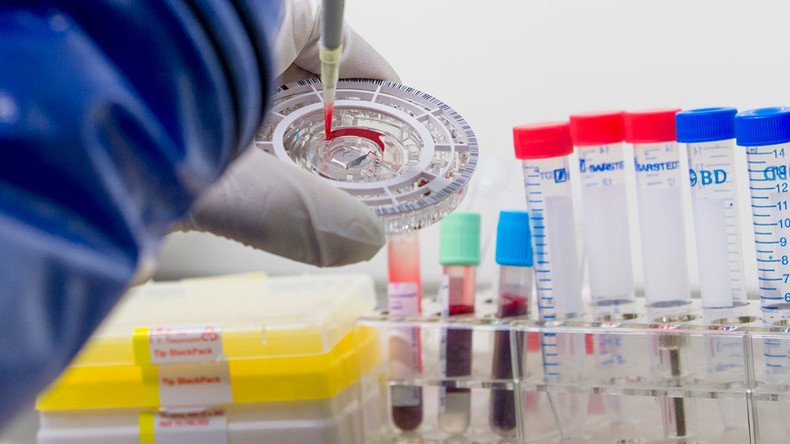Researchers discover new form of contagious cancer

A new form of contagious cancer has been discovered by scientists. Not only does it mean such cancers are not as rare as originally thought, researchers say the disease can wipe out an entire species.
To date there were two known forms of transmissible cancers in nature, and this included forms of tumor spreadable between Tasmanian devils, as well as between dogs and soft-shell clams.
This lead to scientists believing that such a transfer of living cancer cells was rare. The discovery of a third form, however, indicates that such cancers may arise more frequently than previously thought.
A team of researchers from the University of Tasmania, Australia, and the University of Cambridge in the UK found this new form of transmissible cancer in the Tasmanian devil in Australia, the second such cancer in the dog-like marsupial, which can only be found in the wild on the Australian island.
Known as Devil Facial Tumor Disease (DFTD), it was first discovered in the animal in 1996 but this new discovery has identified a second form of the disease which looks similar but has a genetic makeup with a distinct chromosomal arrangement from the first form of DFTD.
Cancers normally cannot survive beyond the body of the host but this transmissible cancer can, through biting, see the transfer of living cancer cells between animals. The study finds that tumors affect the face and mouth first before rapidly spreading through the body of the Tasmanian devil.
This has led to much of the Tasmanian devil population being affected, with many usually dying within months of contracting cancer. This has led to the widespread decline in their population with an estimated 8 percent drop over the last 20 years.
This new discovery was published in the Proceedings of the National Academy of Science journal in December after it was detected in eight devils in southeast Tasmania.
Researchers say it raises questions about the current level of understanding when it comes to cancers that can spread between individuals.
"Until now, we’ve always thought that transmissible cancers arise extremely rarely in nature," Dr Elizabeth Murchison from the Department of Veterinary Medicine at the University of Cambridge, a senior author on the study, said. "But this new discovery makes us question this belief."
"Now that we have discovered that this has happened a second time, it makes us wonder if Tasmanian devils might be particularly vulnerable to developing this type of disease, or that transmissible cancers may not be as rare in nature as we previously thought," Murchison said.












